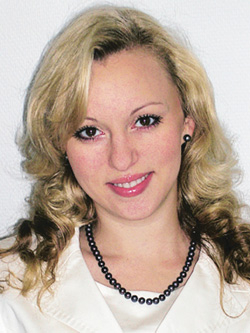
Irina Kurganova
Business Development Director
ManpowerGroup Russia & CIS
Over the next decade, changes in the way companies operate will not be revolutionary or disruptive; they will be an extension of the evolution already visible at many firms today. And it is mostly about workers and a new model of cooperation between an employer and an employee. Thus, many experts expect employees to work longer hours, retire at an older age, and experience greater personal and family stress due to work.
What other changes are in store in the next decade? There is likely to be greater work force fluctuation and a cultural divide between core and contingent workers; more diversity in the work force, especially geographic; increased attention paid to soft skills, personal attributes and experience; and people taking on more responsibility at an earlier stage in their careers. Let's analyze some of them.
Shifting demographics
In most developed countries, population growth has slowed or even reversed. The proportion of working age people to the general population is shrinking even faster: Japan's population will contract by 4 percent between 2000 and 2020, while its labor force is forecast to shrink three times faster (12 percent), according to Economist Intelligence Unit forecasts. The U.S. population will grow by 19 percent over the same period, thanks largely to immigration, but its labor force will increase by only 16 percent. These pressures are forcing companies to seek new labor sources in emerging markets: India's population will grow by 36 percent between 2000 and 2020, and its labor force will be up by 54 percent.
Multinational companies will have to tread carefully. They will need to integrate new workers into fast-growth markets and keep workers in slow-growth markets motivated despite the shift away from their turf.
Age among workers is another factor executives must consider. Baby-boomers in developed countries are retiring at an older age than previous generations. Meanwhile, the younger generation, because of its smaller ranks, is filling strategic roles at an earlier age, with less experience than the previous generation of managers. They must be given accelerated leadership training. In the last 20 years, the number of workers aged 55 or older, for example, in the U.S. has doubled, while that of workers aged 35 to 39 has dropped slightly.
The fluctuating work force
Intensified competition in low-cost markets and the financial crisis have encouraged a trend toward a leaner, more fluctuating work force. We are expecting a growing proportion of workers to be "contingent" (contract-based rather than permanently employed). Employees will be more physically mobile and better equipped to collaborate virtually over the next decade.
A flexible work force will make it easier to scale up or down as business needs dictate — "just in time" resourcing. There will be greater leeway to work from home, make lateral moves and work modified schedules within the next 10 years. Some will choose to become free agents, working where and when they want.
Whether workers choose a more flexible arrangement for their own personal reasons or companies hire more contingent workers for business reasons, there will be a cultural divide between those workers and core staff. Core talent will derive a disproportionate level of resources and opportunity as companies strive to earn their loyalty. They will undergo a more rigorous hiring process than previously, but be rewarded with interesting projects, accelerated leadership development, international assignments and regular promotions. Companies will be challenged to maintain morale and boost collaboration while they shift to a more contingent work force.
Diversity becomes more diverse
Traditionally, a diverse work force was one that included multiple races and ethnicities. But as companies expand in a tighter job market, the definition has expanded. Employers have got to diversify their sources of talent from almost every measure, whether that's gender, academic background, socioeconomic status or immigration status.
International experience (whether through work or school) will be highly regarded. Workers with a tacit understanding of local cultures will be integral to emerging-market operations. Employees at all levels of the organization and in all regions will be given more opportunities to travel, often on a short-term or project basis, or for training.
More than international experience or knowledge, organizations will seek employees with a global mindset, people who are able to work across cultures and are motivated to bring the business to new markets. And even as local expertise is prized, a uniform corporate culture will prevail. Employees — wherever they are in the world — will be expected to conform to a common set of values and communicate in a common "language of business" (usually English). The most successful employees will be those who embody their local culture and the values of the global corporation.
Training in soft skills
Corporate culture and soft skills will become a focus of training within the next decade. Workers will do more project-based work, forming and re-forming into teams rather than having a static role. Problem-solving and project-management skills will be critical. Successful managers will assemble and oversee cross-functional teams rather than an unchanging set of direct reports.
A Message from The Moscow Times:
Dear readers,
We are facing unprecedented challenges. Russia's Prosecutor General's Office has designated The Moscow Times as an "undesirable" organization, criminalizing our work and putting our staff at risk of prosecution. This follows our earlier unjust labeling as a "foreign agent."
These actions are direct attempts to silence independent journalism in Russia. The authorities claim our work "discredits the decisions of the Russian leadership." We see things differently: we strive to provide accurate, unbiased reporting on Russia.
We, the journalists of The Moscow Times, refuse to be silenced. But to continue our work, we need your help.
Your support, no matter how small, makes a world of difference. If you can, please support us monthly starting from just $2. It's quick to set up, and every contribution makes a significant impact.
By supporting The Moscow Times, you're defending open, independent journalism in the face of repression. Thank you for standing with us.
Remind me later.





